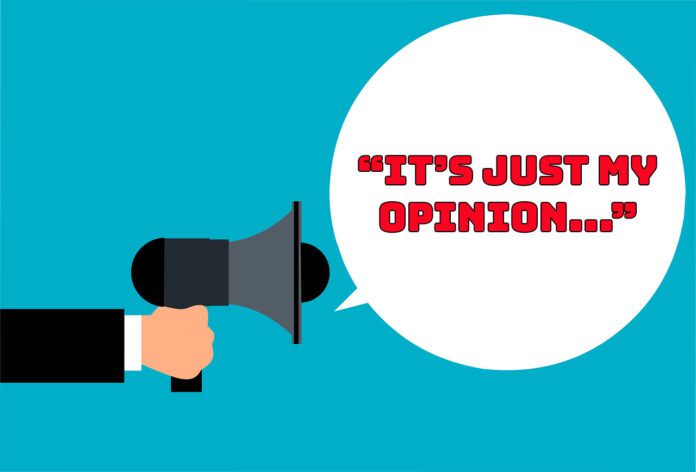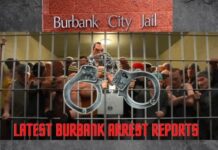It’s just my opinion…
Last week at the end of the Burbank City Council meeting, the Council decided to stop public commenting on separate agenda item reports as they came up for discussion. The vote was 3 to 1, with Sharon Springer voting against it and Bob Frutos absent from the meeting.
The reason is that people can comment before the meeting on any issue they want during that time.
While this is true, it still takes away the public’s right to listen to a report as it is presented to the Council and comment directly at that time. It may be hours later that a report is presented from the time a speaker made their comments, and the speaker’s words and maybe impact are now missing from the moment.
Besides that, what if a person is working and does not get home in time to comment around the 6:30 pm usual time frame that oral comments usually begin? They could still have their say later in the meeting without the rush or stress.
Staff presented the Council with some stats that show that many times, the public has not commented on reports. They argued that only once since May 3 were comments made at a meeting when six people spoke. You have to remember, though, that most of those reports are more procedural than anything else and have very little controversy associated with them.
When a critical issue does face the Council, such as the recent gun store license moratorium recently enacted, members of the public will show up, listen to the report presented, speak, and will engage the Council. Also, when it is time to appoint people to Boards and Commissions, it gives a person a chance to make that impassioned plea for that posting just before the voting, hoping it makes a difference in the vote.
What is the most troubling, however, is how the public is being squeezed out more and more from the process. I am sick and tired of hearing the new buzzword ‘transparency’ always being used, but only when it pleases the person using it.
Let’s go back many years ago when the public was given five minutes during oral communication to speak their peace and an additional three minutes after the meeting to address the Council once again. That five minutes during the first period was cut to three minutes with the understanding that the person could also comment after the staff report. But the strange rule was always that if you addressed the agenda item at the beginning of the meeting, you were not allowed to speak after the staff report. Huh?
And when they took away the ability to comment after reports, did they add time back onto the oral comment period? No, it is still three minutes. And remember those three minutes at the end of the meeting to discuss City matters, that’s still gone, history, out of sight, out of mind. That transparency is starting to get a little clouded.
One reason for the cancellation was that Mayor Jess Talamantes would not have to read the script to the public for the comment period since he would often forget and have to be reminded by the City Attorney. Really?
It seems that the Council is always looking for ways to shorten meetings. There used to be many more meetings held by the Council in the past, but in recent years the number of meetings has been cut to just about the minimum allowed (must be two per month). Maybe if they once again increased the meeting based on need, they could decrease the number of hours they spend at one meeting when, no doubt, some meeting ‘fatigue’ sets in and they just want to get it done and over. And let’s not forget the City Staff that must be there for these long meetings and have to report to work the next day.
If the Council really wants to have the perception of being transparent and welcoming public input, they need to re-establish the comments after reports, as well as at the end of the meeting public oral period. They also need to remove the silly rule that you can only speak once, sometimes actually scolding the public in the past. What if they were told after asking questions to staff they were not allowed to ask additional questions after another Council Member spoke? How would that go over?
If they want to shorten meetings, maybe they can cut the part at the end of the ‘Look what I did since the last meeting’ segment where they boost about all the places they went and all the people they met. Why not just put that part in written form and stick it on the agenda the way they want the public to send in their e-comments? Probably not as much impact as actually saying it, right?
That is how the public feels too.






















A key opportunity to speak and participate in the democratic process was eliminated in a 3 to 1 vote by my Burbank City Council colleagues. The elimination of any Public Comment for the reasons set forth is illogical, exclusionary, potentially dangerous, and can result in disconnected, out of touch government. The reasons set forth: participation has been low since May 3, 2022 - our first post pandemic in-person meeting, and the Mayor’s script is confusing. Should we not give public participation a little more time as we emerge from the COVID pandemic? People are still testing positive, staying home, and avoiding the public. Ironically, Council member Frutos was absent from the vote as he tested positive for COVID. Would it not be simpler and more democratic to rewrite the Mayor’s script so that it’s not confusing?
On July 26, 2022, Mayor Talamantes, Vice Mayor Anthony and Council Member Schultz eliminated in-person public comment after each Report to Council. This comment period has been an effective forum since at least back to 2006 when my neighborhood organized, advocated and was successful in achieving a safer residential street. For most of us, other than voting, it was our first experience with direct, in person government participation. The camaraderie, allocation of the component parts of our presentation, and mutual support were important to achieving our goal of safety for our families, neighbors and visitors. We had jobs, businesses, family responsibilities and other commitments that made participation in the initial General Public Comment impossible.
We called, we wrote, we invited the City Council to our neighborhood, but we had not received responses from all sitting Council members. We needed three votes. They had their own jobs and family responsibilities. Had they heard us, did they read our emails, did they know we called? Did they know about the speeding driver who lost control on the down-hill curve, and slammed head-on into an innocent driver poking up the hill in his minivan? Did they know about the other accidents and how truly dangerous it was?
In exasperation, frustration and fear, my neighborhood showed up at City Hall on a Tuesday night and went home on a Wednesday morning. Our street is safer because of it. To eliminate this Public Comment after each Report to Council can lead to disconnected, unresponsive government and a significant chipping away of our democratic process.
Comments are closed.